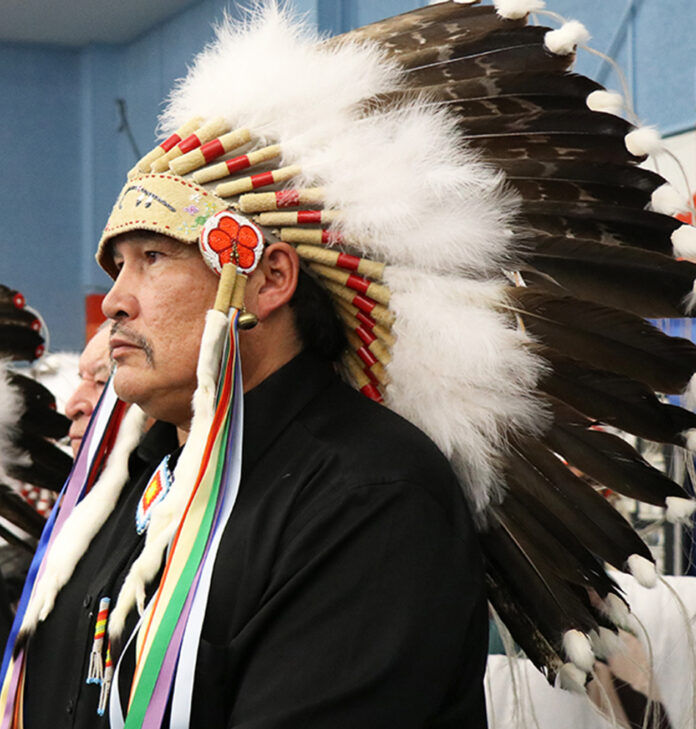The Prince Albert Grand Council has asked city council to delay passing a proposed back alley curfew bylaw, and requested they meet with the PAGC to find a solution.
PAGC Grand Chief Brian Hardlotte said there’s no evidence the bylaw would lower property crimes, however it may lead to carding or racial profiling. Hardlotte recognized that property crime was a problem in Prince Albert, but said the root causes were addiction and poverty—neither of which were being addressed with this bylaw.
“We are committed to addressing the root causes of the problem through a more pro-active approach rather than one that could potentially gravitate into a larger human rights issue,” Hardlotte said in a media release issued on Friday. “We are committed to addressing these multi-faceted challenges by working together with the City of Prince Albert and the Prince Albert Police Service. To this end, we are calling for (city council) to deny the motion of passage and to invite the PAGC to make submissions for debate and discussion that will be grounded on promoting public trust and guardianship for all citizens in the city, especially in this era of reconciliation.”
Prince Albert already has a similar curfew bylaw in place for public parks and city walkways. The walkway curfew bylaw passed in February. The PAGC supported it at the time, but Hardlotte said they have new concerns after closer examination.
He pointed to an Ontario Human Rights Commission (OHRC) policing review released in 2018 as evidence that the practice of carding “was heavily focused on race.” According to the report, black persons in Toronto were over-represented in use of force cases, shootings, deadly encounters and fatal shootings.
“We agree with some critics that this proposed bylaw is punitive in nature and that there is no data-driven, evidence-based research that clearly shows it will lower property crime rates in the city,” he said. “Instead, we can learn from a 2010-17 review by the Ontario Human Rights Commission into race and policing in Toronto which showed that the practice of ‘carding’ was heavily focussed on race. This concern is compounded by the fact that there are already high incarceration rates of Indigenous peoples in the provincial and federal prison system, and we are deeply disturbed that this practice of racial profiling will only reinforce higher incarceration rates.”
In November 2018, the Ontario Human Rights Commission (OHRC) released their inquiry into racial profiling and racial discrimination of black persons in Toronto between 2013 and 2017. Their investigation showed that black people were over-represented in use of force cases, shootings, deadly encounters and fatal shootings during that time. The province of Ontario banned random carding in 2016, although the laws didn’t come into force until January 2017.
Mayor Greg Dionne was unavailable for comment on Friday.
The Bylaw is up for debate at Monday’s regular city council meeting.


